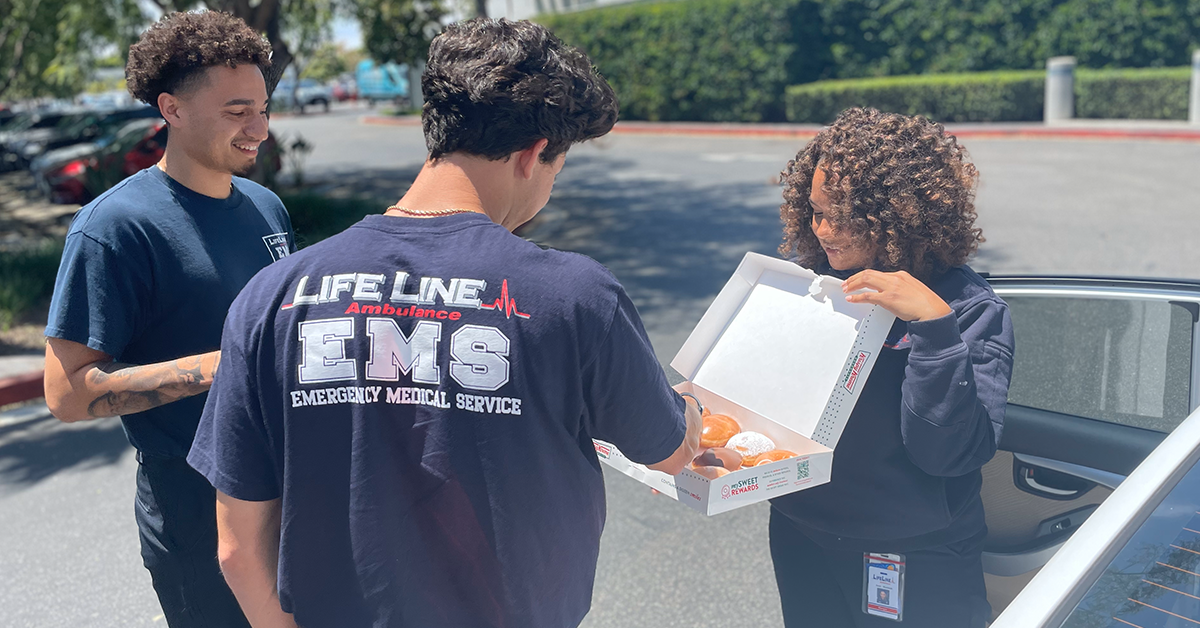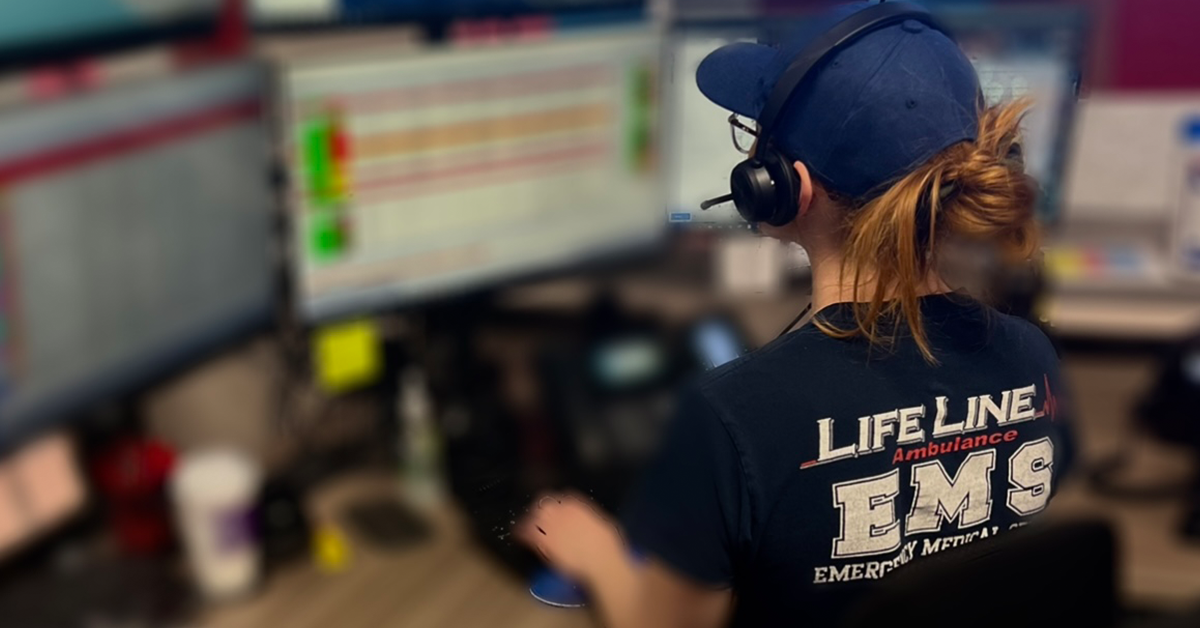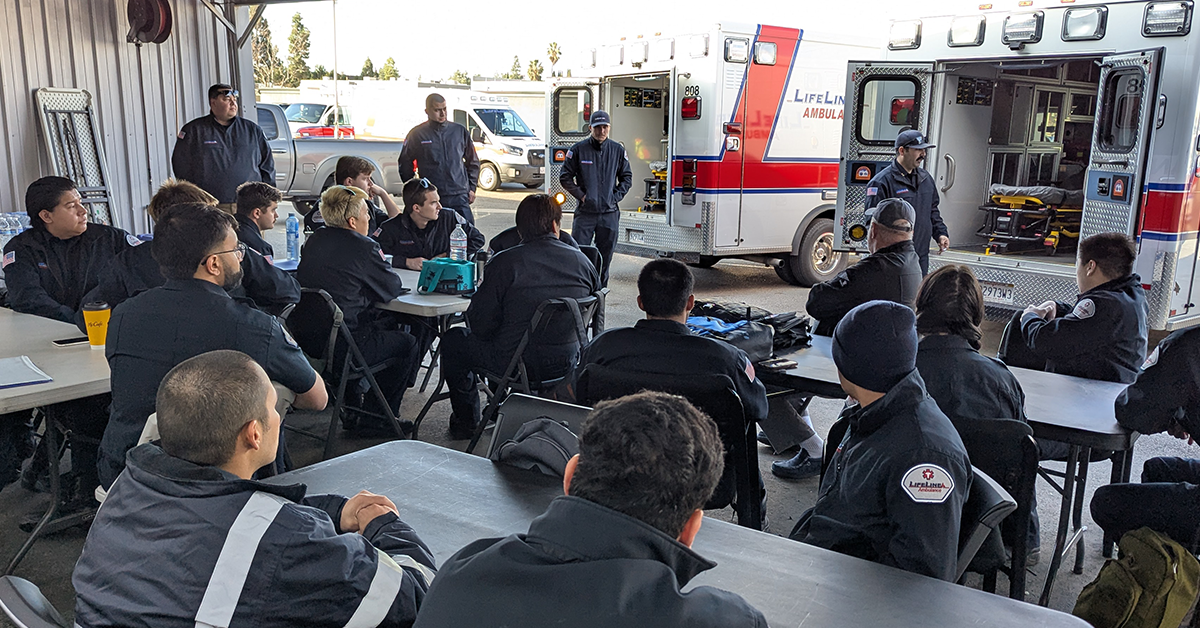Emergency Medical Services (EMS) has traditionally been seen as a challenging but rewarding field. Today, more young adults are recognizing EMS as an ideal first career, offering a fast-paced work environment, a sense of purpose, and numerous pathways for growth and advancement. For those entering the workforce or considering a shift from traditional roles, a career in EMS with providers like LifeLine EMS in Los Angeles and Southern California provides an exciting and fulfilling option.
This article explores why EMS has become a popular choice for young adults, detailing the benefits, growth opportunities, and unique appeal of this essential career path.
The Appeal of EMS as a First Career
EMS offers a unique blend of opportunities that appeals to young adults who are eager to make a difference and pursue a career with purpose. For many, the chance to work in an impactful role where they can help others in moments of critical need is highly motivating.
1. Immediate Impact and Purpose
One of the most attractive aspects of a career in EMS is the opportunity to make an immediate difference in people’s lives. Young adults seeking meaningful work often find EMS appealing because each shift presents an opportunity to help those in crisis, save lives, and provide critical care.
- Helping Others: EMTs and paramedics provide essential medical care during emergencies, which can be immensely fulfilling. For those driven by a desire to serve others, EMS offers a career with a direct, positive impact on the community.
- Sense of Purpose: EMS professionals know their work is crucial, and every call presents an opportunity to help someone in need. This sense of purpose helps build resilience and personal satisfaction, contributing to a fulfilling career.
2. Quick Entry and Accessible Training
EMS is accessible to young adults who may not have a college degree but are willing to undergo rigorous training. EMT certification programs are generally shorter than degree programs, allowing individuals to enter the workforce quickly and begin building experience in a high-demand field.
- Short Training Periods: Many EMT programs can be completed in as little as three to six months. This allows young adults to enter the job market relatively quickly compared to traditional four-year degree paths.
- Certification Accessibility: EMT certification requirements vary by state but are generally attainable with dedicated study, allowing young adults to begin working and earning sooner than other careers that require extended formal education.
3. Career Growth Opportunities
EMS offers numerous pathways for career advancement, which is attractive to young adults who are looking for long-term career potential. Many individuals start as EMTs and go on to pursue advanced roles within EMS or transition into other healthcare fields, such as nursing, paramedicine, and healthcare administration.
- Pathways to Paramedic or Advanced EMT: EMTs can pursue additional certifications to become Advanced EMTs or Paramedics, both of which expand their scope of practice and responsibilities.
- Opportunities in Healthcare Management: With experience, EMTs can move into management positions, overseeing EMS operations or moving into administrative roles within healthcare organizations.
- Transition to Other Medical Careers: EMT experience is highly regarded by medical schools and nursing programs, making it a valuable stepping stone for those interested in furthering their careers in healthcare.
Why EMS Appeals to the Millennial and Gen Z Workforce
For Millennials and Gen Z, EMS is especially appealing because it aligns with their values and work preferences. Young adults today are increasingly drawn to careers that offer work-life balance, flexibility, and opportunities to make a meaningful contribution. EMS checks many of these boxes, making it an ideal choice for a new generation of workers.
1. Desire for Purposeful Work
Millennials and Gen Z place a high value on meaningful work that aligns with their personal values. EMS allows young adults to find purpose in their daily tasks by providing life-saving care to people in need. For those who want to make an impact and are driven by a desire to contribute to their communities, EMS provides a sense of purpose that is difficult to find in other fields.
- Impact-Driven Work: EMS allows young adults to engage in meaningful work where they can see the immediate effects of their efforts, which is particularly motivating for those who want to create positive change in their communities.
- Community Connection: Many EMTs and paramedics develop strong ties with the communities they serve, which further deepens their commitment to their work.
2. Job Stability in a Growing Field
The demand for EMS professionals is expected to grow due to an aging population and an increasing need for healthcare services. For young adults concerned about job security and career stability, EMS offers a promising option with steady demand.
- High Demand for EMS Workers: EMS professionals are in high demand across the country, especially in densely populated areas like Los Angeles and Southern California. As healthcare needs increase, EMS jobs are expected to continue growing.
- Career Stability and Security: The essential nature of EMS work means that it is largely recession-proof, offering young adults a secure job even in uncertain economic times.
3. Learning Transferable Skills
EMS professionals gain a range of valuable, transferable skills that can be applied in a variety of healthcare and non-healthcare fields. This versatility is especially appealing to young adults who want flexibility in their careers.
- Critical Thinking and Problem-Solving: EMS work requires quick thinking, situational awareness, and problem-solving under pressure. These skills are valuable in nearly any professional setting.
- Communication and Interpersonal Skills: EMTs interact with patients, families, and healthcare teams, developing communication skills that are essential for building relationships in any field.
- Time Management and Adaptability: The dynamic nature of EMS work fosters time management and adaptability, which are highly sought after by employers in various sectors.
Career Advancement and Further Opportunities
For young adults entering EMS, there is no shortage of opportunities for career growth and specialization. Whether through advanced certifications, education, or specialized EMS roles, EMTs have multiple pathways for advancing their careers and expanding their skill sets.
1. Becoming a Paramedic
Many EMTs choose to pursue additional training to become paramedics. Paramedics have a more extensive scope of practice, enabling them to provide advanced medical care, administer medications, and perform complex procedures. This progression not only increases responsibility but also offers higher earning potential and more career flexibility.
- Advanced Training and Responsibilities: Paramedics are trained in advanced airway management, IV therapy, and pharmacology, allowing them to provide a higher level of care.
- Leadership Opportunities: Paramedics often serve as team leaders on EMS calls, making this role ideal for young adults who are interested in taking on leadership responsibilities.
2. Specializing Within EMS
EMS offers numerous areas of specialization that can appeal to young adults with specific interests. Specialized EMS roles allow individuals to focus on particular areas of emergency care or expand their expertise to work with specific populations.
- Critical Care Transport: EMTs and paramedics can specialize in critical care transport, focusing on the safe transport of critically ill patients between facilities. This role requires additional training and provides valuable experience in complex medical cases.
- Tactical EMS: For those interested in working alongside law enforcement, tactical EMS involves providing medical support during law enforcement operations. This specialty combines EMS skills with tactical training, offering a unique and challenging career path.
- Flight Paramedics: Flight paramedics work in air medical transport, providing care to patients being transported by helicopter or plane. This role requires additional certifications and offers unique experiences outside of traditional EMS settings.
3. Opportunities in Healthcare Administration and Beyond
For young adults interested in the administrative side of healthcare, EMS experience can be a valuable asset. EMTs and paramedics can transition into healthcare management roles, where they oversee operations, manage personnel, and contribute to healthcare policy and planning.
- Healthcare Management Positions: With additional education, EMTs can move into roles like EMS coordinator, operations manager, or director of EMS services, where they oversee the administrative and logistical aspects of EMS operations.
- Pursuing Higher Education in Healthcare: Many EMTs choose to pursue further education, such as a bachelor’s degree in healthcare administration or a master’s degree in public health, which opens doors to leadership roles in the broader healthcare sector.
How LifeLine EMS Supports Young Adults Entering EMS
LifeLine EMS in Los Angeles and Southern California is dedicated to helping young adults succeed in EMS. By providing comprehensive training, mentorship, and opportunities for professional growth, LifeLine EMS ensures that new EMTs are well-prepared to excel in their careers.
1. Comprehensive Training Programs
LifeLine EMS offers a robust training program that covers the essential skills and knowledge EMTs need to provide high-quality care. Through hands-on training, simulations, and field experience, new EMTs gain confidence and competence in their roles.
- Skill Development: New EMTs receive extensive training in CPR, trauma care, patient assessment, and more, ensuring they are prepared for the demands of the job.
- Simulation-Based Learning: LifeLine EMS uses simulation-based training to expose new EMTs to realistic emergency scenarios, building their ability to respond effectively in high-pressure situations.
2. Mentorship and Career Guidance
To support young adults in their career development, LifeLine EMS provides mentorship and guidance from experienced EMS professionals. This mentorship helps new EMTs navigate the challenges of the field and explore pathways for advancement.
- One-on-One Mentorship: New EMTs are paired with mentors who offer support, advice, and insights, helping them develop their skills and build confidence.
- Career Pathway Planning: LifeLine EMS assists EMTs in exploring different career options within EMS, including specialization and leadership roles, ensuring that young professionals have a clear vision for their career growth.
3. Opportunities for Advancement
LifeLine EMS offers numerous opportunities for advancement, supporting EMTs who wish to become paramedics, specialize in a particular area, or move into administrative roles. By investing in the growth of its employees, LifeLine EMS provides a rewarding career path for young adults.
Keep Reading
Want more? Here are some other blog posts you might be interested in.
In the high-stakes world of emergency medical services, clear and effective communication can mean the difference between life and death. EMS professionals...
Emergency Medical Services is an ever-evolving field that requires constant learning and adaptation. With medical advancements, technological innovations, and increasing public health...
Emergency Medical Services s a high-stress, physically demanding profession that requires dedication, quick decision-making, and resilience. While the rewards of saving lives...






